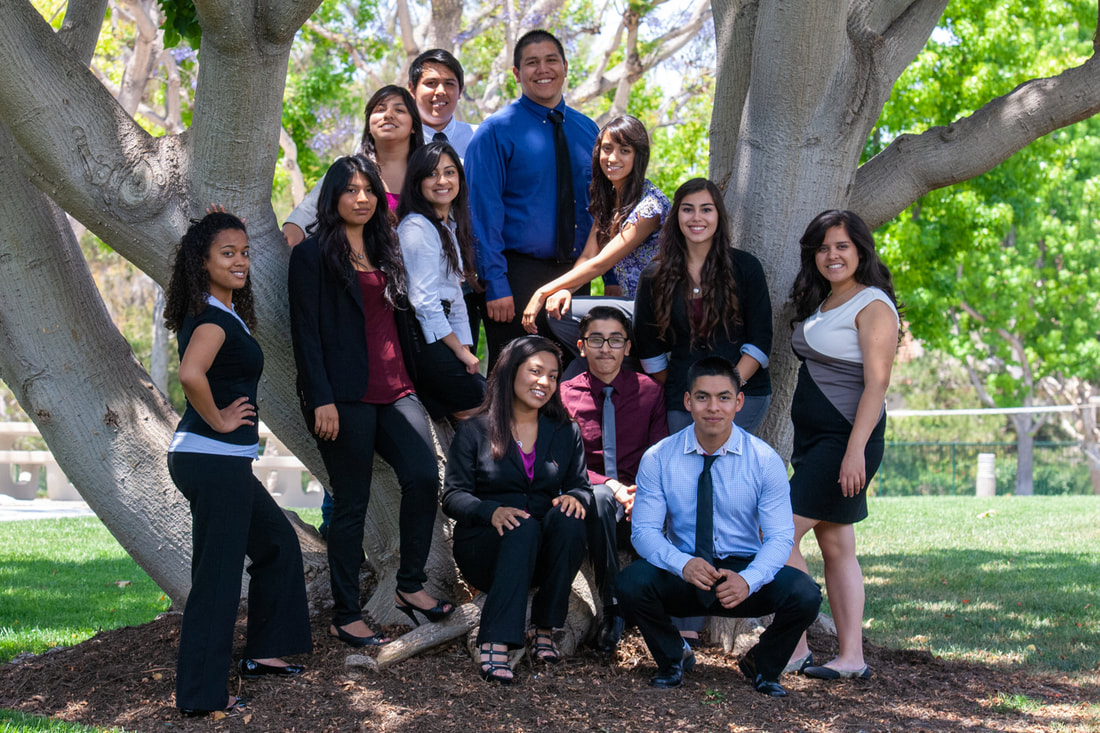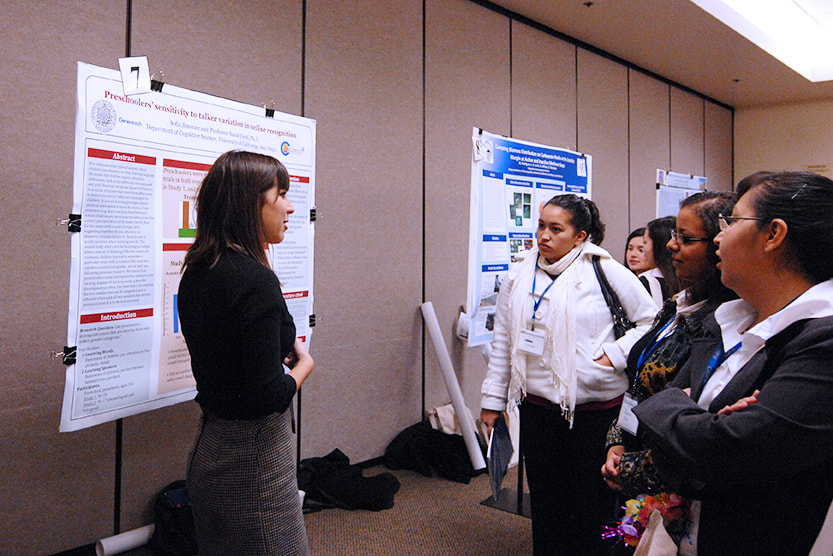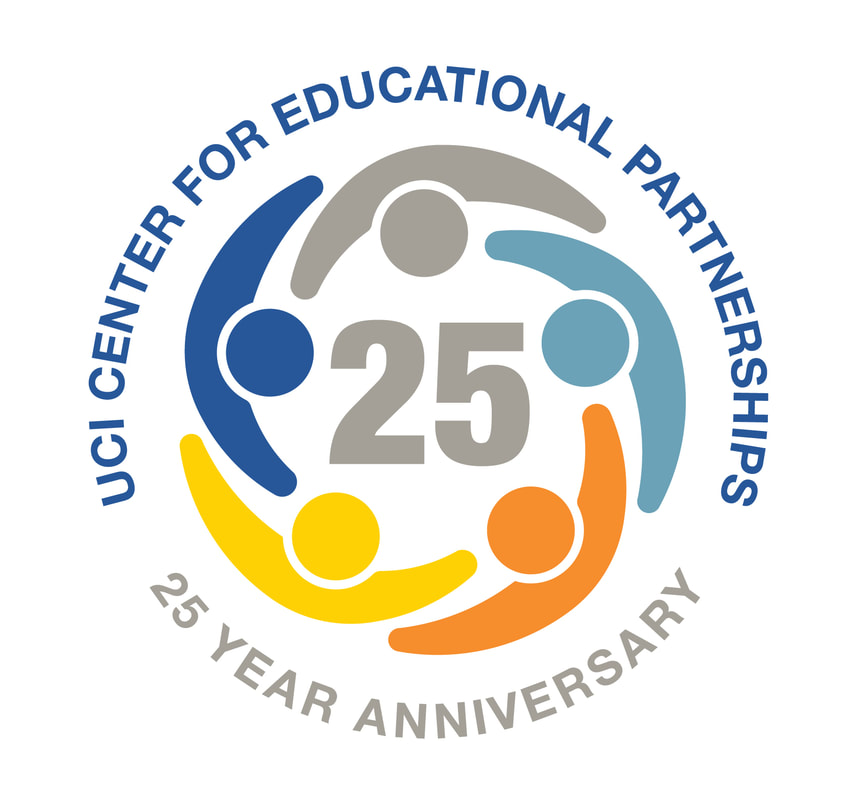BUILDING LIFELONG CONNECTIONS
AT CAMP
|
The Louis Stokes Alliance for Minority Participation (LSAMP) program, named after the civil rights pioneer who served 15 terms in the U.S. House of Representatives, was developed to eradicate the postsecondary degree completion disparity between minoritized and non-minoritized students in science, technology, engineering, and mathematics (STEM).
The National Science Foundation leads this nationwide effort to advance diversity in STEM by increasing the number of undergraduate and graduate degrees awarded to underrepresented populations: African Americans, Hispanic Americans, American Indians, Alaska Natives, Native Hawaiians, and Native Pacific Islanders. The University of California, Irvine was the first UC to adopt the LSAMP initiative on its campus as the California Alliance for Minority Participation (CAMP) program in 1991. It is now on every UC campus. |
CAMP at UCI recognizes that students come from a range of high school academic experiences and research demonstrates that minoritized students often face additional challenges in the STEM classroom, including stereotype threat and microaggressions. With a keen understanding of the context surrounding inequitable systems that act as barriers to positive academic outcomes, CAMP provides students with information, resources, and opportunities to increase their science identity, build community, and help them realize, and maximize, their full potential in STEM.
As part of the CAMP community, students learn how to meaningfully engage with faculty mentors, expand their STEM networks, build supportive peer relationships, identify academic strategies that are unique to their preferred learning style, engage in the knowledge creation process through undergraduate research experiences, and attend conferences to present their research. CAMP is far more than a program that is transactional in nature, it is genuinely concerned about the lived experience of each and every student and tailors its programming to individualize the resources provided so that students get the most out of their time at UCI.
On average, CAMP serves approximately 1,000 minoritized students each academic year across all STEM disciplines.
As part of the CAMP community, students learn how to meaningfully engage with faculty mentors, expand their STEM networks, build supportive peer relationships, identify academic strategies that are unique to their preferred learning style, engage in the knowledge creation process through undergraduate research experiences, and attend conferences to present their research. CAMP is far more than a program that is transactional in nature, it is genuinely concerned about the lived experience of each and every student and tailors its programming to individualize the resources provided so that students get the most out of their time at UCI.
On average, CAMP serves approximately 1,000 minoritized students each academic year across all STEM disciplines.
|
“Understanding how our work supports students from underserved communities, with both a quantitative and qualitative lens, helps us to tell the story about how postsecondary institutions may further support students that have historically been placed in the margins,” said Dr. Pheather R. Harris, CAMP director. “It positions us to be really impactful and intentional with our work to advance diversity, equity, access and inclusion efforts in STEM.”
CAMP has always understood the importance of faculty mentorship in student success. “In the 90s, undergraduates didn’t conduct as much research in the lab; it was an anomaly whereas today it’s a given,” said Marjorie DeMartino, former statewide CAMP co-director. “Research has a large benefit - it helps build your credentials, improves writing and communication skills, and ultimately leads to presenting at national conferences.” |
Additionally, CAMP’s mission is to create inclusive academic spaces that fosters communication, encourages authenticity, honors intersectionality, and strengthens a sense of community for its members.
“For decades, CAMP has been a central fixture at UCI in its efforts to recruit and support a diverse population of STEM students,” says Derek Dunn-Rankin, CAMP faculty lead and professor and chair of UCI’s Mechanical and Aerospace Engineering Department. “It continues to demonstrate best practices for inclusion and success of its students.”
“For decades, CAMP has been a central fixture at UCI in its efforts to recruit and support a diverse population of STEM students,” says Derek Dunn-Rankin, CAMP faculty lead and professor and chair of UCI’s Mechanical and Aerospace Engineering Department. “It continues to demonstrate best practices for inclusion and success of its students.”
/
Understanding how our work supports students from underserved communities helps us to tell the story about how postsecondary institutions may further support students that have historically been placed in the margins. It positions us to be really impactful and intentional with our work to advance diversity, equity, access and inclusion efforts in STEM.
Director, CAMP |
The CAMP community also helps combat “imposter syndrome,” a feeling in which individuals doubt their skills, talents, competencies or abilities.
“CAMP tries to create a group of students who care about each other and encourage each other along their degree pathway,” DeMartino said. “We had underrepresented and low-income students show up to UCI with a 4.0 high school GPA and think they weren’t smart enough. But there’s evidence of community from the students who tell their stories of how they felt they belonged to a group of academic achievers.” CAMP also creates mechanisms where students can explore varied career and network opportunities. “The continued academic and personal assessment provided by our CAMP staff provided referrals to a vast number of services at UCI, exposed them to scholarships and research opportunities and served as liaison between science summer research faculty at other universities,” said Kika Friend, former CAMP director. “Many of our students were first-generation college students, and serve as role models to siblings and extended family.” |
Additionally, the program awards students with academic scholarships. This includes the Edison STEM Scholars Program, which awards $15,000 to eligible community college transfers, and the Gutierrez Family STEM Fellowship, which awards $4,000 to a student conducting summer research with UCI faculty.
“CAMP has come a long way since its inception, and has positively influenced the lives of thousands of minoritized students in STEM,” Dr. Harris said. “Looking ahead, my hope is that CAMP can be a model for other campuses that seek to enhance the science identity of students through courses that are focused on various junctures of their academic journey, experiential learning, and faculty partnerships.”
“CAMP has come a long way since its inception, and has positively influenced the lives of thousands of minoritized students in STEM,” Dr. Harris said. “Looking ahead, my hope is that CAMP can be a model for other campuses that seek to enhance the science identity of students through courses that are focused on various junctures of their academic journey, experiential learning, and faculty partnerships.”
The preceding story is part of the "CFEP: 25 Years of Impact" series, honoring the people, programs and partnerships that have helped impact millions of students, teachers and families over the past quarter century. View the entire series here.





